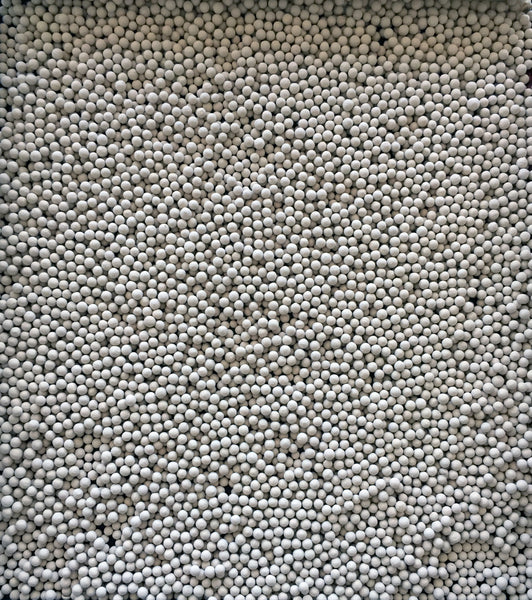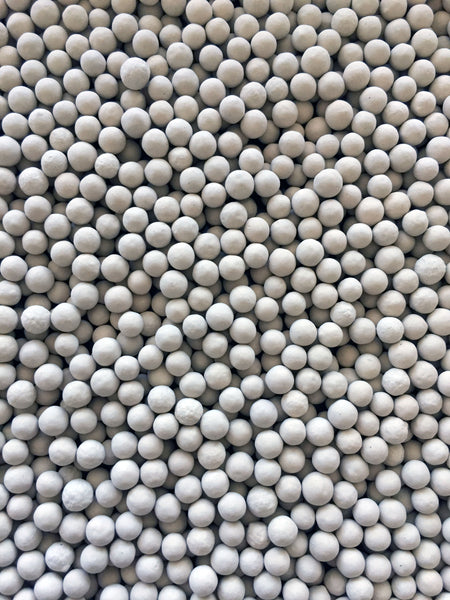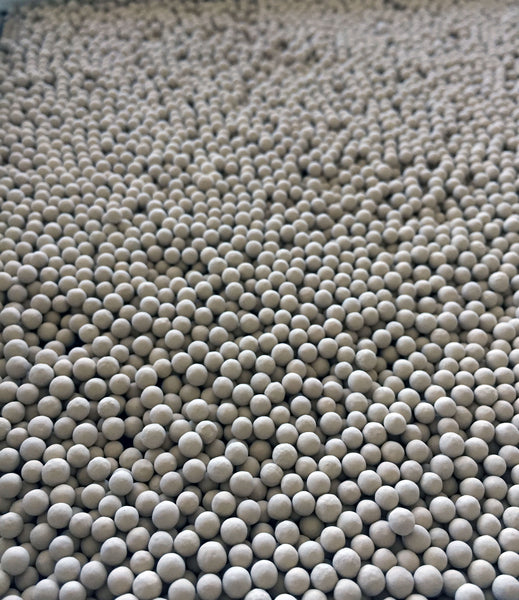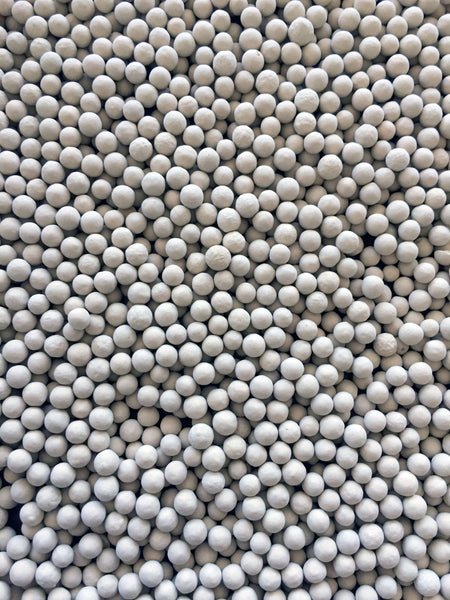4A Molecular Sieve (4x8 Bead)
- Available in Packaging Option:
- 330 Pound Drum (actual weight: 150kg)
- Our ISO Certified manufacturing process and multiple quality control checkpoints allows us to deliver reliable products to our users
- For use in industrial, laboratory, or personal applications
- Local packaging and inventory available in Houston, Texas
4A Molecular Sieve, or Zeolite, is Commonly Used in Dehydration Processes to Remove Water from a Product Stream. The Specialized Crystals Inside each Bead have Pore Openings Measuring about 4 Angstrom in Diameter, which Allows the Selective Adsorption of Molecules Smaller than 4 Angstroms such as Water, While Allowing Larger Hydrocarbons to Pass Through to the Final Product Stream. This Molecular Sieve can Used Repeatedly After being Regenerated in Temperature Swing Applications and Pressure Swing Applications.
This Product is Suitable for Industrial Processes and can be Used to Deeply Dehydrate Gas Streams for Cryogenic Separation, Remove Water from Air Streams, Used for Static Dehydration in Closed Liquid and Gas Systems, and is Commonly Considered a Universal, Industrial Strength Desiccant. This Product has a Fast Mass Transfer Rate, High Mechanical Strength, Low Attrition, and is a Versatile Molecular Sieve that has a Wide Range of Consumer and Industrial Applications. This Product is Great for Keeping Contents Dry and Overall Water Scavenging, Used for Humidity Control and Gas Removal.
Applications
- Biofuel Production
- Dehydration of Unsaturated Hydrocarbons (Acetylene, Butadiene, Cracked Gas, Ethylene, Propylene)
- Gas and Liquid Dehydration (Air, Ammonia, Argon, Carbon Dioxide, Coal Gas, Hydrogen, Oxygen, and Refrigerants)
- Natural Gas Dehydration
- Oil Refining
- Petroleum Dehydration
- Polar Liquid Drying (Ethanol and Methanol)
- Solvent Drying








